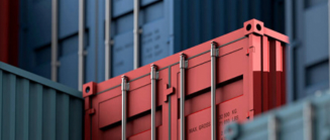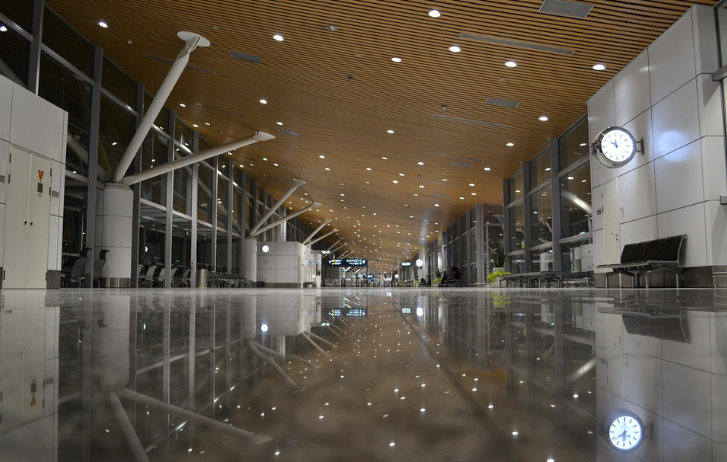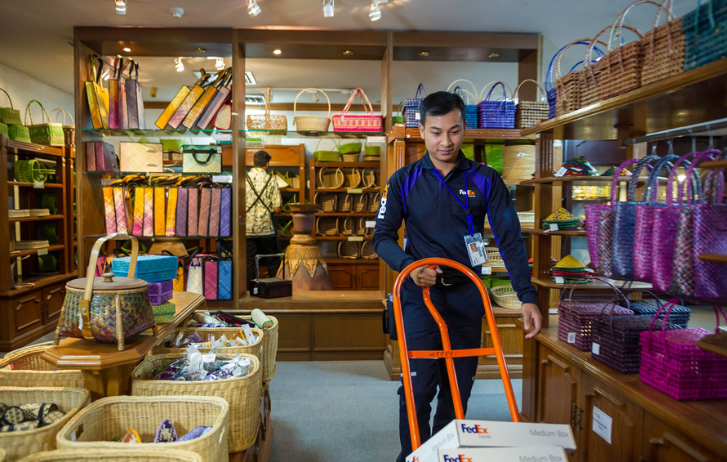
The Evolution Of The Logistics Industry In Malaysia
By Tien Long Woon | August 29, 2024
Malaysia's logistics industry is fueling economic growth and innovation in e-commerce and cargo freight. Discover how the landscape is evolving, driven by small businesses targeting cross-border expansion.
The logistics industry is a key driver of Malaysia's economy, propelled by e-commerce and international trade and contributions.
Enhanced transportation infrastructure and global supply chain innovations have strengthened Malaysia's position as a global business hub.
The logistics industry is a cornerstone of the Malaysian economy – and recent growth is encouraging. Malaysia’s GDP (Gross Domestic Product) grew by 3.68% in 2023, driven by the burgeoning e-commerce sector and expanding international trade. Both multinational corporations (MNCs) and small-and-medium enterprises (SMEs) are playing an active role in how the economy is shaping up.
Malaysia is also making efforts to position itself as a globally attractive business hub. Major import and export trade partners include China, Singapore, the United States, Hong Kong, and Japan. E-commerce is also opening Malaysian consumers up to markets in the rest of the world. Popular goods sold online in Malaysia include apparel, beauty, health and wellness products, electronics and home and living items.
Within this dynamic sector, logistics providers play a crucial role, driving business growth and enhancing efficiency through strategic investments in infrastructure and technology. These developments have reinforced Malaysia’s position as a thriving player in the global logistics landscape.
Key developments in Malaysia's transportation infrastructure
FedEx began operating in Malaysia three decades ago. The most notable infrastructure development we’ve witnessed in that time has been the Kuala Lumpur International Airport (KLIA).
The efficient integration of ground and air networks at KLIA has played a vital role in elevating Malaysia's status as a global business hub and driving its economic growth. Complementing this progress, significant developments in Malaysia's road network have greatly improved road transportation.
Key projects like the Central Spine Road and Pan-Borneo Highway have been successful in streamlining road networks and unlocking vital connectivity across the country.
The expansion of industrial zones and Free Trade Zones (FTZs) has helped Malaysia become an attractive destination for foreign investment. The ongoing growth of these zones has generated numerous opportunities for businesses across various sectors, including technology, healthcare, and automotive.
In support of this expansion, additional infrastructure development has created a more extensive network of roads, airports, seaports, and rail systems. These factors are increasingly making Malaysia an attractive choice for companies looking to establish supply chain hubs in Asia.
SMEs look to the logistics sector to support plans for growth
Opportunities for growth, driven by the surge in e-commerce and international trade, abound. The top three biggest opportunities for Malaysian SMEs in 2024 are digital transformation, artificial intelligence and automation (32%), global expansion and e-commerce (31%) and employee education and training (28%).
The Malaysian government is also enhancing logistics efficiency through strategic initiatives like the Pelan Strategik Pendigitalan Sektor Awam (PSPSA). The PSPSA is a five-year plan aimed at accelerating public sector digitalization in areas such as infrastructure, services, government service transformation, capacity building and governance.
Advancements in cross-border trade regulations are an added benefit. The introduction of a single window system for customs documentation has streamlined processes for acquiring permits, licenses, and regulatory approvals, reducing costs for logistics providers, and boosting trade efficiency.
These digitalization efforts not only improve the sector’s competitiveness, but also position Malaysia as an attractive logistics hub, fostering economic growth, and global connectivity. Malaysia's logistics providers can help SMEs navigate the industry and meet evolving business and consumer demands.
Technological innovations and sustainability efforts in supply chains
Malaysia's competitive logistics sector has flourished by quickly adapting to market dynamics, maintaining its edge through the integration of new technologies. As our industry embraces next-generation innovation, operations at FedEx have shifted to become tech-enabled and data-driven, with the goal to make supply chains smarter for everyone.



Examples of technologies we’re deploying include computer-assisted vehicles, artificial intelligence, autonomous technologies, and digital tools for tracking and analyzing a parcel’s journey. These digital innovations not only help our company work smarter, but also make it easier for customers to do business with us.
Sustainability in logistics is crucial for the future of the industry. At FedEx, we’re aiming for carbon-neutral operations by 2040. This includes expanding our electric vehicle (EV) fleet. By 2030, all new pickup and delivery vehicle purchases will be electric. Investments also extend to renewable energy and carbon capture research.
One recent highlight was our first cross-border EV trial delivery from Malaysia to Singapore. On the 406km journey, we reduced CO2 emissions by about 100kg compared to diesel vehicles. This aligns with our broader ambition to transition to zero-emission vehicles by 2040. The trial yielded important insights into EV charging efficiencies, and provided data on EV efficiency under different speeds and operational conditions. This can inform how we select which EV models are suitable for FedEx's real-world operational demands in future.



Our FedEx Sustainability Insights (FSI) calculator now gives customers to access detailed environmental data. For supply chain innovations to be impactful, it’s crucial to get our customers on board to become part of the solution.
The future of logistics in Malaysia
After 30 years operating in Malaysia, we continue to focus on supporting businesses of all sizes and sectors as well as individual shippers. The logistics industry remains agile, ready to capitalize on e-commerce and international trade growth.
This, combined with sustainability efforts and forward-looking government initiatives, propels the logistics sector forward, underscoring its pivotal role in Malaysia's economic growth and global connectivity.
For more inspiration, SME stories and tips, visit our Small Business Center here.
SHARE THIS STORY
- Generative AI: A New Frontier
- How To Ship A Giant Panda
- How To Make Freight Shipments Work For Your Small Business
- The Rise Of Intra-Asia Trade: Opportunities In The China-Southeast Asia Corridor
- Where Do Old Planes Go When They Retire?
- What’s So Dangerous About Coconuts? Your Guide To Dangerous Goods Logistics
Sign up now and save on your shipping rates!
Sign up now and earn discounts by shipping instantly with FedEx Ship ManagerTM at fedex.com.
Recommended For You

Top 3 Logistics Trends To Watch: Data and Digitization
Logistics providers are turning into tech drivers, with the increased use of AI and big data in managing supply chains.
Read More
The Essential Logistics Metrics Business Owners Need To Know
Want to improve efficiency and streamline your supply chain? Discover key logistics metrics for business success with our 101 guide.
Read More
5 Logistics Trends Driving A Smarter Supply Chain
FedEx is delivering both transportation and digital solutions, as it builds a smarter supply chain for everyone.
Read More

